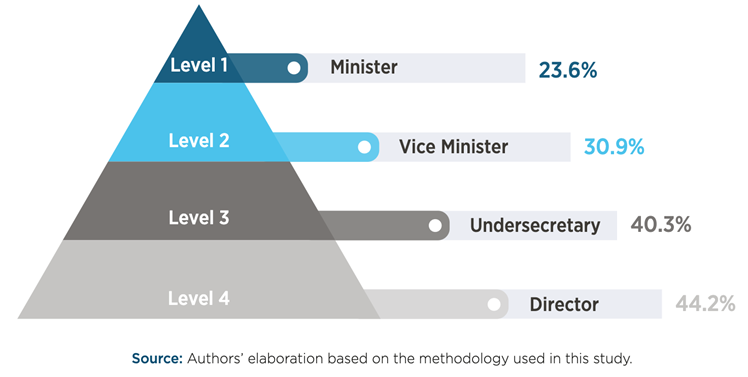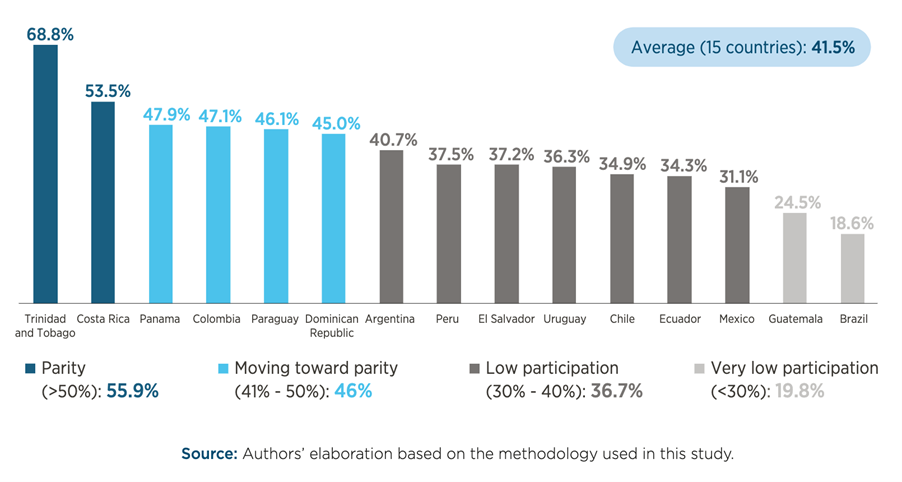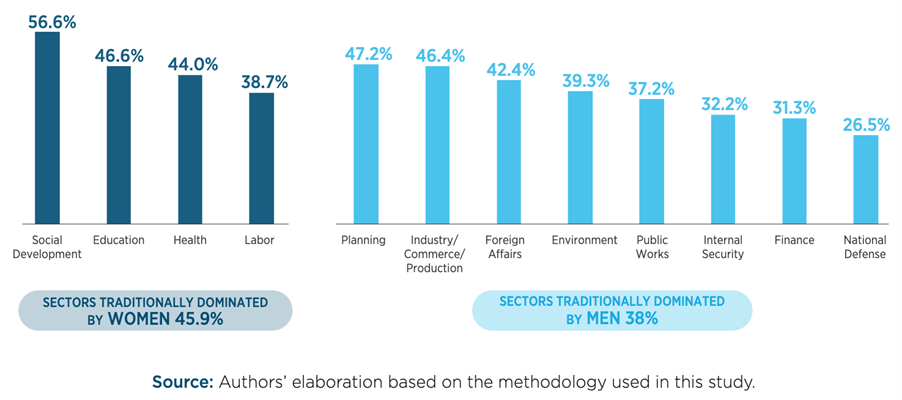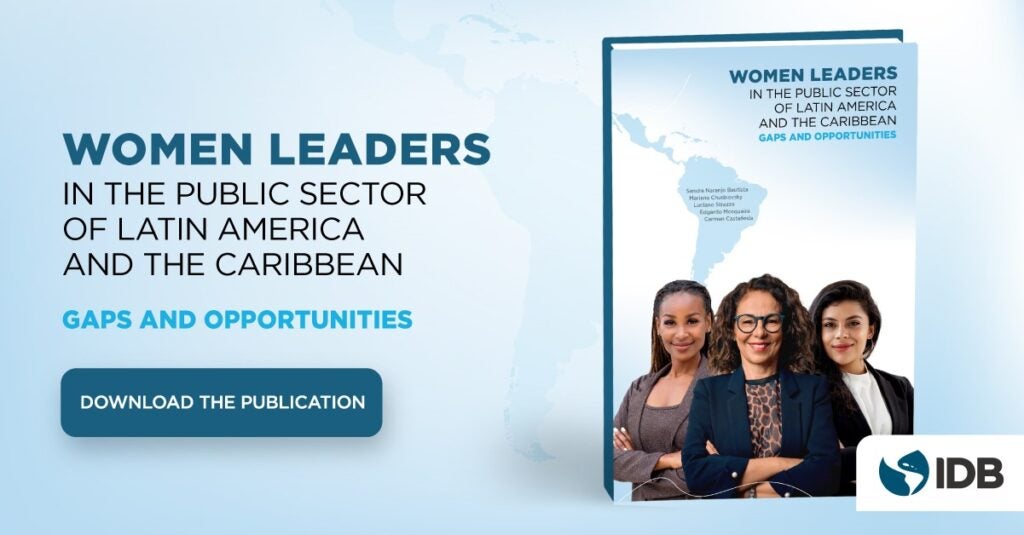Women occupy less than half of the leadership positions in the public sector despite representing more than 50% of the population. The presence of women in leadership positions in the public sector is essential. Not only due to gender equality factors but also because there is evidence that their presence generates multiple benefits. In addition to contributing new experiences and perspectives, women’s presence is associated with higher economic growth, better public services, improved performance of public organizations, lower levels of corruption, among other benefits.
Some figures on the presence of women in the public sector may seem encouraging. According to data from the International Labor Organization, in Latin America and the Caribbean women represent 52% of the workforce in the public sector and occupy 41% of management positions. However, aggregate figures provide only partial information telling only part of the story.
A recent IDB study fills this information gap by analyzing, for 15 countries in the region, the presence of women in the four highest levels of the executive function, in 12 sectors. The results are not necessarily surprising and that is precisely the problem. Here are the main conclusions of the analysis.
1. Women are still absent at the highest decision-making levels of central public administrations. In the 15 countries analyzed, women occupy only 23.6% of positions at level 1 of the hierarchy, equivalent to a minister, compared to 44.2% who reach positions at level 4, equivalent to a director.

On average, 41.5% of the leadership positions in the 12 agencies selected for the study are held by women.

2. Women continue to do “women’s things“. The presence of women in leadership positions is higher (45.9%) in areas associated with traditional gender stereotypes, such as Education and Health, and their presence decreases (38%) in sectors traditionally dominated by men, such as Finance and Defense. This behavior persists even in those countries where women’s participation is higher.

3. On paper, the region has complied, but in practice, the task is still pending. In most countries there are regulations, organizations and public policies for gender mainstreaming, but their effect is still uncertain. The mere existence of these instruments does not guarantee that the objective for which they were created will be achieved.
4. The focus has been on the objectives and not on generating the conditions necessary to achieve them. If the region seeks to successfully implement policies toward substantive equality, strengthening the capacity of the State to implement, monitor, and evaluate such policies is essential. For example, by implementing gender-sensitive human resource management systems that promote women’s access, participation, and promotion in multiple sectors, especially at decision-making levels.
5. Latin America and the Caribbean require a more ambitious gender agenda in the public sector, moving from compliance with formality to the true use of women’s talent in the region. The public sector could be the benchmark in each country for what it means to close the gender gap. It requires political will and prioritizing concrete actions that are measurable and achievable over time. To this end, it is key to foster the presence of women’s leadership beyond a merely symbolic role.
Although the numerical presence of women in leadership positions is important, this should not be the end in itself. It is also necessary to strengthen the capacities and resources of the mechanisms responsible for gender equality and mainstreaming. In short, a gender agenda must be considered that eliminates the barriers that prevent women from fully exercising their rights and having access to equal development opportunities through structural, legal, or public policy measures.
It is time to measure progress on gender issues based on results, not on the mere adoption of norms, standards, and policies that, in practice, change nothing.
Review the study Women Leaders in the Public Sector in Latin America and the Caribbean to learn more about the proposals to generate effective changes to reduce these gaps.
The Spanish version of this blog was first published by the Inter-American Development Bank.




Leave a Reply